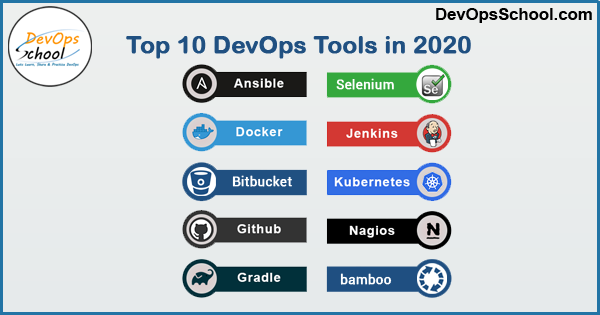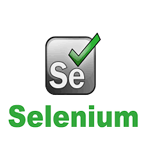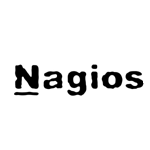
What is DevOps?
DevOps is a set of practices that automates and combines between software development and IT teams, DevOps is a process to build projects test, and release software faster and more reliably. DevOps is an information technology methodology that helps streamline processes and updates software rapidly to help businesses function more efficiently. DevOps process is pre-production environments, where code gets deployed and tested. Automating a delivery pipeline is reliant on code being built and deployed into a variety of environments.
Source:-leanix.net
Benefits and Top 10 DevOps Tools of 2020
Here i’m going to explore major benefits of top 10 DevOps tools.
- Better Employment Opportunities :-
DevOps is more demanding in the IT sectors, DevOps adopts in everywhere IT sectors. DevOps practitioners are among the highest paid people in IT and it’s the number one most difficult tech job to fill in the IT market. - Improve your knowledge and skill-set :-
DevOps helps to improve IT skills as well as technical. Bound on trust, DevOps engineer will be eternally challenged by new technology, complex problems, or dynamic roles. - Increase your salary by leaps and bounds :-
DevOps Engineers more demanding in IT sectors. DevOps Engineers salary now ranks in the top 5 of all tech salaries with an average salary of $112,678 USD. - Improve your effectiveness and productivity :-
DevOps is a practice or mindset that combines everything by efficient adoption of the Agile methodology. Audit of the maturity of the software delivery lifecycle. Delivering an estimate of time frames and expenses for each activity. - You could be a better leaders an organizations :-
DevOps is challenge in Global IT sector and makes you good leadership can greatly impact the success of your team your organization and yourself. To be an effective leader, you must understand your own motivations, strengths and weaknesses. Better leadership means connect with their teams and communicated them, encouraging employee growth and development. - Certification from the right institute can add a lot of value :-
Certification from the right institute can add a lot of value of your certifications and your IT skills. DevOpsSchool certifications will give you global recognition and make you stand of the crowd. You may found number of DevOps requirement offered by different IT sectors and help you boost up your career. - Apply a learnings across the software lifecycle :-
The software development life cycle provides a well-managed framework, developing for designing software and managing, and there are numerous ways to implement the SDLC. Software lifecycle techniques learning, making decision process as possible, delivering fast, empowering a team. Software lifecycle is a great influence on creating a well-managed structure of a development project. - Faster feedback :-
DevOps helps to improve faster feedback as your code and work of the development team, without feedback cannot successfully implement continuous testing and find bugs etc. DevOps gives developers a better chance learn how well their coding choice perform in the context of production environments.
Here we are going to describe about Top 10 DevOps tools 2020
- GitHub
- BitBucket
- Bamboo
- Kubernetes
- Gradle
- Selenium
- Jenkins
- Docker
- Nagios
- Ansible
- GitHub :-

GitHub is an open-source hosting platform, which provides the software development version control to the users. The cloud-based service opens the door for the developers to manage and store their codes with an advantage to change and track it with the possession of full authority. It is the largest open-source hosting platform on the planet for coding. In addition to the Git code warehouse hosting and basic web management interface, it also provides subscriptions, discussion groups, text rendering, online file editors, collaboration maps (reports), and code snippet sharing ( Gist) and other functions.
2. BitBucket:- 
Bitbucket is a repository management solution from the Australian company Atlassian. This web-based version control repository comes in handy to development teams that use the Mercurial or Git revision control systems. BitBucket set up the workflow of build-test-deploy instantly, by enabling the pipeline feature of the current repository. Bitbucket pipelines with deployment allow building, testing, and deploying code with integrated CI/CD.
3. Bamboo :- 
Bamboo is a Continuous integration server that can be used to automate the release management for software application, creating a continuous delivery pipeline. Bamboo tools allows to build document, integrate, test the source code and prepare an app for deployment. It comes with the flexibility to use various tools, easy to use graphical user interface and allows the developers to use CI/ CD methodologies.
4. Kubernetes :-
Kubernetes is an open source code its use for managing clusters of containers. kubernetes use for deploy applicatons, scaling those application as needed, managing changes to existing containerized applications, and helps you optimize the use of the underlying hardware beneath your containers. Kubernetes is designed to be extensible and fault-tolerant by allowing application components to restart and move across systems as needed.
5. Gradle :- 
Gradle is an open source build automation tool that is based on the concept of Apache Maven and Apache Ant. Gradle can automate the building, testing, publishing, deployment and more of software packages or other types of projects such as generated static websites, generated documentation or anything else. It is capable of building almost any type of software.
6. Selenium :- 
Selenium is powerful open-source automation testing tool which is used for automating web-based applications. Selenium IDE is an easy to use tool for any person and which is designed to work with Firefox. It uses Firefox plugin with graphical user interface, this GUI will allow user to record test actions and replay. It also supports to write/run test cases without learning scripting languages as well as to all common languages such as Java, C#, Perl, Python, Ruby and Groovy scripts.
7. Jenkins :- 
Jenkins is an open source tool for perform Continuous integration and build automation its written in Java. It provides Continuous Integration services for software development, which can be started via command line or web application server. Jenkins is distributed as a WAR archive and as installer packages for the major operating systems, as a Home brew package, as a Docker image, and as source code. The source code is mostly Java, with a few Groovy, Ruby, and Antlr files.
8. Docker :- 
Docker is a new technology that allows development teams to build, manage, and secure apps anywhere containers and the Docker’s approach gives you the opportunity to work without any need of dependencies. Docker allows developers to focus on the things which actually matters without worrying about the environment where the application runs. Docker helps developers build lightweight and portable software containers that simplify application development, testing, and deployment.
9. Nagios :-
Nagios is an open source monitoring system for computer systems. It was designed to run on the Linux operating, monitor system, network and infrastructure. It is used for continuous monitoring of systems, applications, service and business process in a DevOps culture. Nagios offers monitoring and alerting services for servers, switches, applications and services. It alerts users when things go wrong and alerts them a second time when the problem has been resolved.
10. Ansible :-
Ansible is an Open source IT automation engine that automates cloud provisioning, configuration management, application deployment, intra-service orchestration, and many other IT needs. Ansible works by connecting to your nodes and pushing out small programs, called “Ansible modules” to them. These programs are written to be resource models of the desired state of the system. Ansible can automate IT environments whether they are hosted on traditional bare metal servers, virtualization platforms, or in the cloud.
Where to learn DevOps :-
DevOpsSchool is the best institutes for DevOps online and classroom training DevOpsSchool is market demanding institutes. Our DevOps Essential/Fundamental and Advance courses and all other training programs are designed after the market research and as per the industry demands in certain way where each participant can get benefits with more content in short duration of time. Apart from that we also run various Classroom DevOps training and public batches globally on regular basis in cities like Bangalore, Hyderabad, Chennai, Pune, Mumbai and abroad as well as Chicago, New York, Amsterdam etc.
DevOps Workshop Training in Bangalore ITC | Participant’s Reviews & Feedback | DevOpsSchool
For more information please visit us:- DevOpsSchool
- What is DevOps? Salary and Future Growth of DevOps Engineer? - November 3, 2022
- Docker Tutorials: Containerization Evolution and Benefits - October 3, 2022
- Docker Tutorials: What is Docker? Future of Docker engineers? - October 3, 2022

